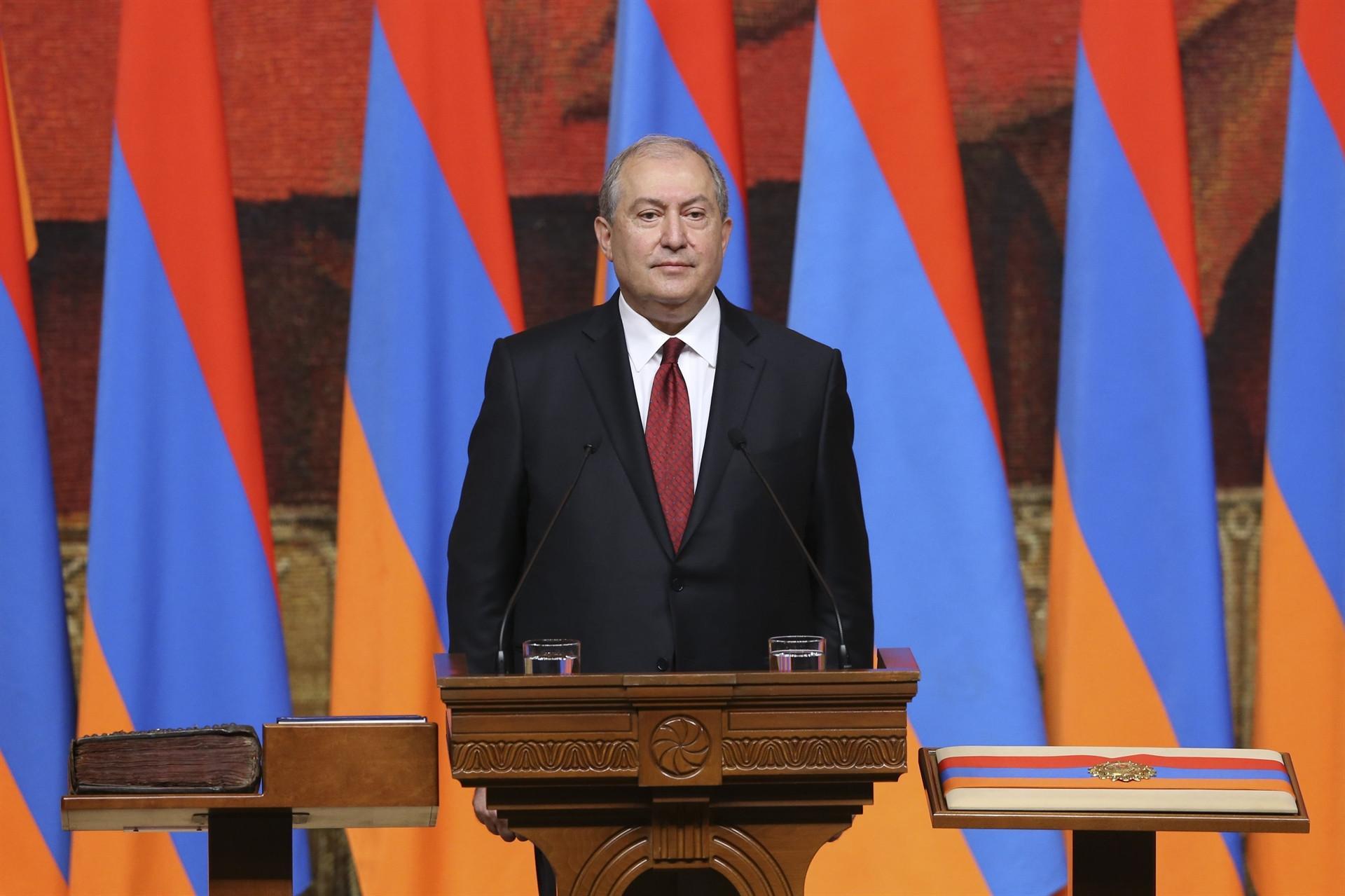
Armenia’s new President Armen Sarkissian was sworn in on April 9 but power is expected to remain with his predecessor as the republic shifts to a parliamentary form of government.
The former ambassador to the United Kingdom took the oath of office at an extraordinary parliamentary session, his right hand laid on a 7th-century manuscript of the New Testament, and the Armenian Constitution.
The 64-year-old then received blessings from the head of the Armenian Church, Catholicos Garegin II.
Sarkissian’s inauguration allows controversial 2015 constitutional amendments to come into force, turning the country into a parliamentary republic with a strong prime minister.
The political shift was initiated by the outgoing president - who is no relation to the new leader -- and was approved in a referendum with 63 percent of the voters backing the changes.
Critics of Serzh Sargsyan, 63, say the reforms have been designed to increase his power in a new capacity as premier.
The ruling party has defended the reform as a move aimed at consolidating the Caucasus nation’s democracy and improving the balance between the legislative and executive branches of power.
But the opposition complained of widespread violations at polling stations during the December 2015 referendum, prompting thousands to rally in protest.
Hand-picked by the Republican Party, Sarkissian was the sole candidate for the now mostly ceremonial presidential post. Elected on March 2 by the National Assembly for a single term of seven years, the president is expected to mainly rubber-stamp the prime minister’s decisions.
Under the new legislation he is not part of the country’s Security Council.
A former physics professor, Sarkissian briefly served as prime minister in the 1990s.